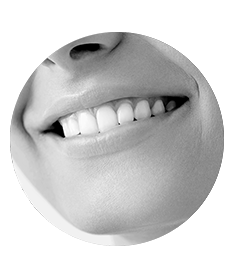As a dentist in Springfield, Ohio, I’ve seen firsthand the transformative power of a healthy diet on dental wellness. I’m often asked by my patients, “Dr. Blank, what should I eat to keep my teeth healthy?” Today, I want to share with you the same advice I give them, drawing from my years of experience and the collective wisdom of my esteemed colleagues in Springfield’s dental community.
Let’s dive into the foods that not only tantalize your taste buds but also form the foundation of a robust oral health regimen.

Crunch Your Way to a Radiant Smile
Believe it or not, chewing certain foods can be akin to a natural dental workout. Here are some of my top recommendations:
Carrots: These are a dental triple threat. Crunchy, packed with fiber, and a natural abrasive, carrots stimulate saliva production—your mouth’s cleaning agent—and are rich in vitamin A, vital for enamel health.
Apples: Dubbed “nature’s toothbrush,” apples are a fibrous fruit that increases saliva flow, helping to wash away bacteria and food remnants while also giving your gums a gentle massage.
Celery: Think of celery as your mouth’s broom, sweeping away food particles and massaging your gums. It’s a crunchy, refreshing snack that’s a car wash for your oral health.

Dairy Products: The Enamel’s Allies
Dairy is a dental superhero due to its high calcium content, essential for strong teeth. Here’s why I often suggest incorporating these into your diet:
Cheese: A favorite for many, cheese is rich in calcium and helps balance your mouth’s pH, which can reduce the risk of tooth decay. Plus, it boosts saliva production.
Yogurt: With its combination of calcium and probiotics, yogurt is excellent for teeth and gum health. The probiotics help keep cavity-causing bacteria at bay. Just remember to opt for the plain variety to avoid added sugars.
Milk: A glass of milk can do wonders for your teeth, thanks to its calcium and phosphorus content, which help reinforce enamel just like they do your bones.

Power Nutrients for Pearly Whites
A sparkling smile isn’t just about brushing and flossing; it’s also fueled by the proper nutrients.
Calcium-Rich Foods: Beyond dairy, calcium can be found in leafy greens like kale and spinach, almonds, and certain seafood like salmon and sardines—great options for those with dietary restrictions.
Vitamin D Sources: This vitamin is crucial for maximizing calcium absorption. Fatty fish, egg yolks, and fortified foods are excellent choices to ensure you get enough vitamin D.

Snack Smart for a Healthy Mouth
Snacking can be good for your teeth if you choose the right foods. Nuts like almonds and walnuts are not only nutritious but also help clean your teeth. Fresh fruits like strawberries and watermelon can also promote saliva production and naturally clean your teeth.

Hydration: The Cornerstone of Dental Health
I can’t stress enough the importance of hydration for maintaining oral health. When I discuss hydration with my patients, I emphasize that it’s not just about quenching thirst—it’s a critical component of a healthy mouth.
Here’s why staying hydrated is so vital for oral hygiene:
Saliva Production: Saliva is your mouth’s first line of defense against tooth decay. It washes away food particles and neutralizes acids produced by bacteria, which can harm your teeth and lead to cavities. Adequate hydration ensures that your salivary glands are working at their best to protect your teeth and gums.
Preventing Dry Mouth: A dry mouth can increase the risk of dental health issues, including gum disease, tooth decay, and infection. Saliva is necessary to moisten and cleanse our mouths and digest food. Drinking water regularly helps maintain saliva flow and prevents dry mouth.
Water as a Mouth Rinse: Every time you drink water, you give your mouth a rinse. Water dilutes the acids and flushes out food particles and debris that bacteria in your mouth would otherwise feast on. This is why I often recommend rinsing with water after meals if brushing isn’t immediately possible.
Fluoride: In many communities, like Springfield, Ohio, tap water is fortified with fluoride, which has been shown to reduce the incidence of tooth decay. Fluoride helps to remineralize tooth surfaces and makes them more resistant to decay. By drinking tap water, you’re not only staying hydrated but also getting the added benefit of fluoride.
Maintaining pH Balance: The pH level in your mouth plays a significant role in oral health. A lower (more acidic) pH can lead to enamel erosion and tooth decay. Drinking water helps maintain a neutral pH level in the mouth, which is less hospitable to harmful bacteria that can cause decay and disease.
Supporting Gum Health: Adequate hydration is also vital for keeping the tissues in your mouth healthy. Dehydration can lead to inflamed or bleeding gums, a precursor to gum disease.
Best Liquids for Hydrations
Water: It’s the ultimate drink for dental health. Fluoridated tap water is my go-to recommendation because it helps prevent tooth decay and cleanses the mouth.
Tea: Both green and black teas are rich in polyphenols that fight harmful bacteria in your mouth. They’re also a natural source of fluoride, especially when brewed with fluoridated water.
Foods to Approach with Caution
As much as I advocate for certain foods, there are others I suggest enjoying in moderation:
Sugary and Acidic Foods: Regular and diet sodas, citrus fruits, and sticky candies can harm your teeth, leading to cavities and enamel erosion.
Hard Foods: Hard candies and ice can cause dental emergencies like broken teeth, so it’s best to avoid them.
Incorporating Teeth-Friendly Foods into Your Diet
Creating a meal plan that’s good for your teeth can be both fun and beneficial. Combine foods that clean your teeth with those that provide essential nutrients. For example, a cheese and apple pairing can neutralize fruit acids and clean your teeth simultaneously.
Remember, while diet is crucial, regular dental check-ups are indispensable. At Blank Dental, we’re dedicated to providing top-notch dental care tailored to your needs. From routine cleanings to advanced procedures, we’re here to ensure your smile stays healthy.
For personalized advice and to keep your dental health on track, I invite you to schedule an appointment with us at Blank Dental. Let’s work together to seal your smile with the right bite!






